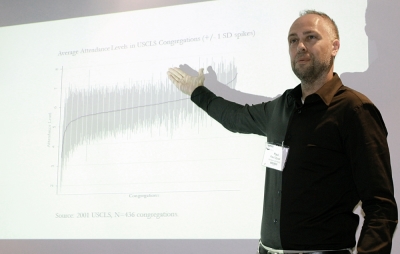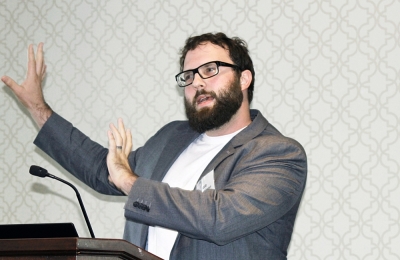Christian Right Not Responsible for People Leaving Church, Study Finds
WASHINGTON — Contrary to popular opinion and previous research, the Christian Right was not responsible for people leaving their church, a new study finds.
While those who have left the Church appear to mostly have sympathies on the left side of the political spectrum, a correlation between those who have left the Church and views of the Christian Right does not imply that the Christian Right caused them to leave, according to researchers Paul Djupe, associate professor of political science at Denison University, and Jacob Neiheisel, assistant professor of political science at University of Buffalo, SUNY.
In their paper, "The Choice That Matters: Politics in the Role of Leaving Congregations," presented Aug. 30 at the American Political Science Association Annual Meeting, Djupe and Neiheisel found that politics was related to the reason some chose to leave their congregations, but not in the way many imagine.
In a 2012 interview with The Christian Post, for instance, David Campbell, professor of political science at University of Notre Dame, discussed his research showing that young people were turning away from the Church because they associated Christianity with the Republican Party. Other researchers, Djupe and Neiheisel point out, have also found relationships between national politics and the decline of Church membership. While Djupe and Neiheisel do not doubt that the relationship exists, their study raises doubts about the implication that the relationship is causal, or that people are leaving the Church because of the Christian Right and the Republican Party.
After all, they point out, the decision to leave the Church necessarily entails leaving a particular congregation, which could include leaving long-term relationships. Additionally, if the Christian Right were the cause of a decline in church membership, it would not explain the decline of Mainline Protestant churches, which have little connection to the Christian Right.
"It seems highly dubious that evaluations of a social group out in society would have any bearing on a relationship with a particular congregation," they wrote.
Djupe and Neiheisel used a combination of national surveys and local panel data, where the same people are polled several times over an extended period. Partly through their efforts and partly by happenstance, they were able, by and large, to focus on those who actually left the Church, rather than move or switch congregations.
They found that those who left the Church did so due to circumstances related to the congregation they left, rather than how they feel about the Christian Right.
Differences and disagreements at the congregational level are more likely to drive people away from the Church, they conclude. These could include political differences, but also include income differences. Someone whose income was far different from the congregational average was more likely to leave, for instance.
Additionally, those differences have to be large and seem to matter only for newcomers to a congregation. In other words, long time members of a congregation appear to be less bothered, and less likely to leave, over the fact that they feel different, with regard to income or politics, from other members of the congregation. (This also correlated with age — older people are less likely to leave.)

"The effect of feeling different has no effect [on decisions to leave the Church] if the individual is well integrated into the life of the church," Djupe and Neiheisel wrote.
Politics mattered at the congregational level, their data showed, but other factors — extensive friendship networks, feelings of belonging and valuing particular aspects of the congregation — boosted attendance.
Large differences among the political activism levels of members were related to lower attendance levels, but only in congregations that had medium to high average levels of political activism. For congregations that had low levels of political activism, political differences did not contribute to lower attendance. (The data actually showed a slight boost in attendance when the differences were large).

Though politics was found to be a small factor, the congregations where it did matter were, by far, mostly Mainline Protestant. Twenty-nine percent of congregations had the conditions for which politics made decreased attendance (high average levels of political activism with a significant minority who were inactive politically). This included 22 percent of Evangelical congregations, 19 percent of Catholic parishes and 22 percent of Black Protestant congregations. For Mainline Protestants, however, almost two-thirds, 65 percent, had the conditions for which politics drove down church attendance.
The little evidence showing the influence that the Christian Right may have had on decisions to leave the Church was inconsistent. In some of their models, the influence actually worked in the opposite direction from what many have claimed. Some models showed a correlation between antipathy toward the Christian Right and leaving the Church while others showed those who favored the Christian Right were more likely to leave the Church.
While the study showed that congregational differences are often associated with decisions to leave, the authors point out that those differences need to be large and even then the effect is small. This finding, they note, is consistent with other studies showing that congregations often adopt methods for accommodating diversity.
"At this point, which is to say on average, it is remarkable how much difference persists within congregations along political, religious and demographic lines. People acknowledge those differences and learn to live in more or less diverse communities of believers," they wrote.






















